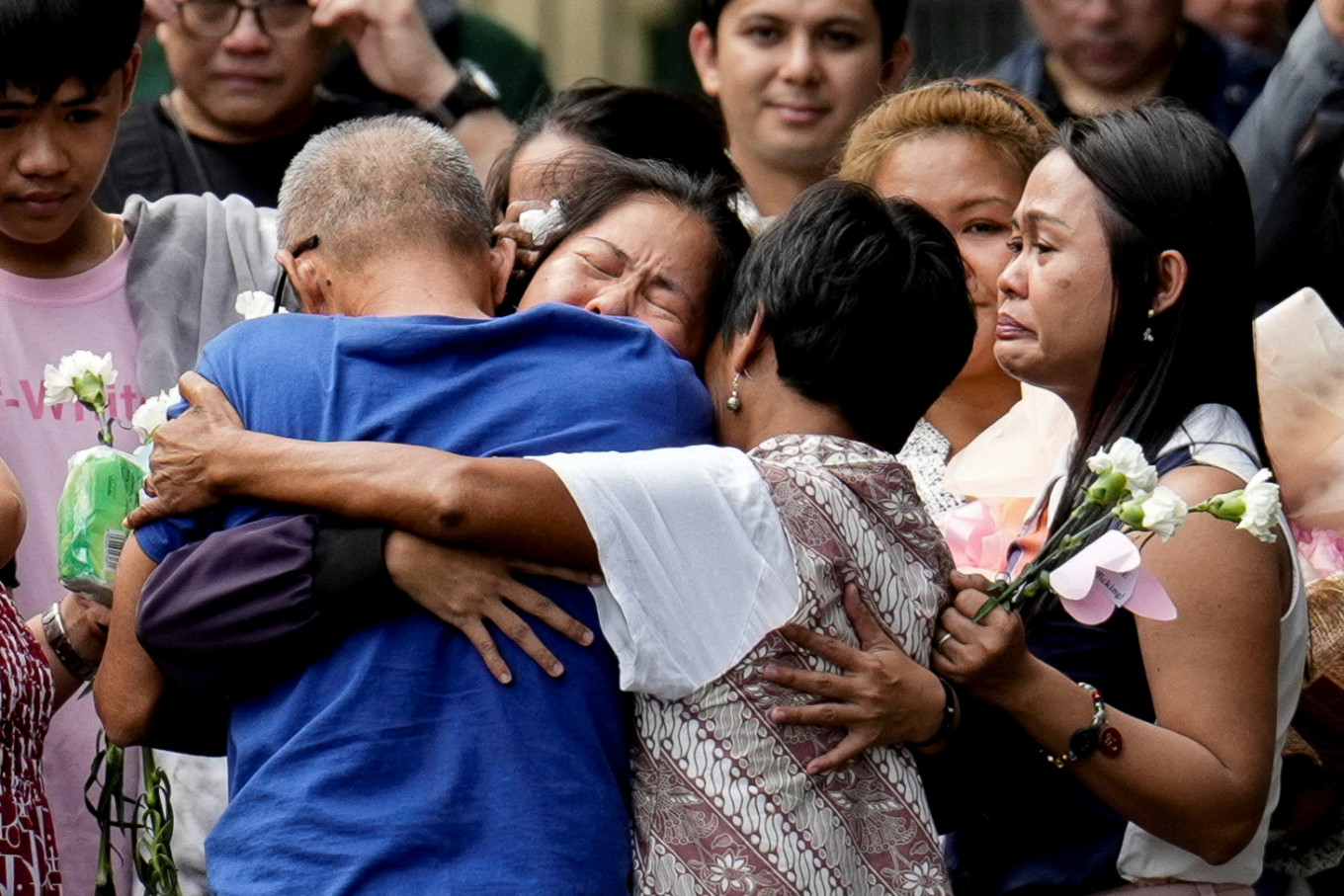Popular Reads
Top Results
Can't find what you're looking for?
View all search resultsPopular Reads
Top Results
Can't find what you're looking for?
View all search resultsReversing the killing trend
The new Criminal Code, passed in 2022 and which will take effect next year, can mark a step forward for a complete end to capital punishment.
Change text size
Gift Premium Articles
to Anyone
I
ndonesia has often displayed hypocrisy. While condemning foreign governments that have sentenced its citizens to death, Indonesia is steadfast in maintaining capital punishment at home, defying decades of calls for an end to the practice.
Indonesian courts are not averse to handing down the death penalty. In 2024 alone, they sentenced 85 convicts to death, most of them for drug-related offenses, according to the latest report released by human rights group Amnesty International.
The figure from Indonesia, the third-highest in Southeast Asia after Vietnam and Myanmar, was part of a total of over 28,000 convicts sent to death row around the world last year. What Indonesia does is in contrast with its neighbor Malaysia’s actions of handing out “large-scale commutations of death penalty”, as reported by Amnesty.
Indonesia’s issuing of dozens of death penalties last year is ironic as the country, under President Prabowo Subianto, decided to repatriate two foreign convicts sitting on death row for years on the basis of humanity.
But a glimmer of hope remains: Indonesia has not executed any of its death row prisoners since 2016, in contrast with China, the United States and Southeast Asian neighbors Singapore and Vietnam, which have continued to execute their prisoners.
While Indonesia is holding back from carrying out the executions, the country has also been making steps to give a second chance to its death row convicts.
Human rights activists are particularly hopeful that the new Criminal Code, passed in 2022 and which will take effect next year, will mark a step forward for a complete end to capital punishment, which is an inhumane legacy from the colonial era.
The new Criminal Code provides an automatic 10-year probation for death row convicts through good behavior in order to have their sentences commuted. The regulation also authorizes a sitting president to reduce the death sentence to life or 20 years in prison after the inmates’ probation period has passed.
We should appreciate these baby steps toward the complete abolition of the death penalty, after studies have shown it lacks the deterrent of other kinds of punishment, such as long terms of imprisonment. Research looking at the US in 2004 found that there were nearly six murders per 100,000 of the population in states that practice the death penalty, higher than the only four per 100,000 population in states that do not impose capital punishment.
Now, Indonesia needs to push more to abolish the death penalty altogether. Activists have argued that eliminating the death penalty may help Indonesia and Prabowo in a campaign to bring home more than 150 citizens sitting on death row in other countries, most of whom are former migrant workers in Malaysia.
One of the easiest first steps, according to rights defenders, is for law enforcement agencies to make the execution moratorium official and commute the sentences of all death row inmates.
President Prabowo has apparently made a step in the right direction by declaring against handing out death penalties, a decision that reflected his “statesmanship and humanity”, according to his coordinating law minister Yusril Ihza Mahendra.
While saying that the death penalty could not be erased from the Criminal Code, Yusril added that the government would draft a technical regulation on handing down capital sentences.
Some alternatives he mentioned were prosecutors offering alternative punishments to judges while still demanding a death sentence. Yusril also suggested that the new regulation could mandate convicts or their families and lawyers to submit a request to the President for clemency before a court can order the execution of a prisoner after the 10-year probation period.
We welcome any efforts, especially from the government, that will lead to the elimination of the death penalty, whether through regulations or other avenues. With miscarriages of justice believed to be rampant, there is always a risk that we will kill innocent people if capital punishment remains on the books.











